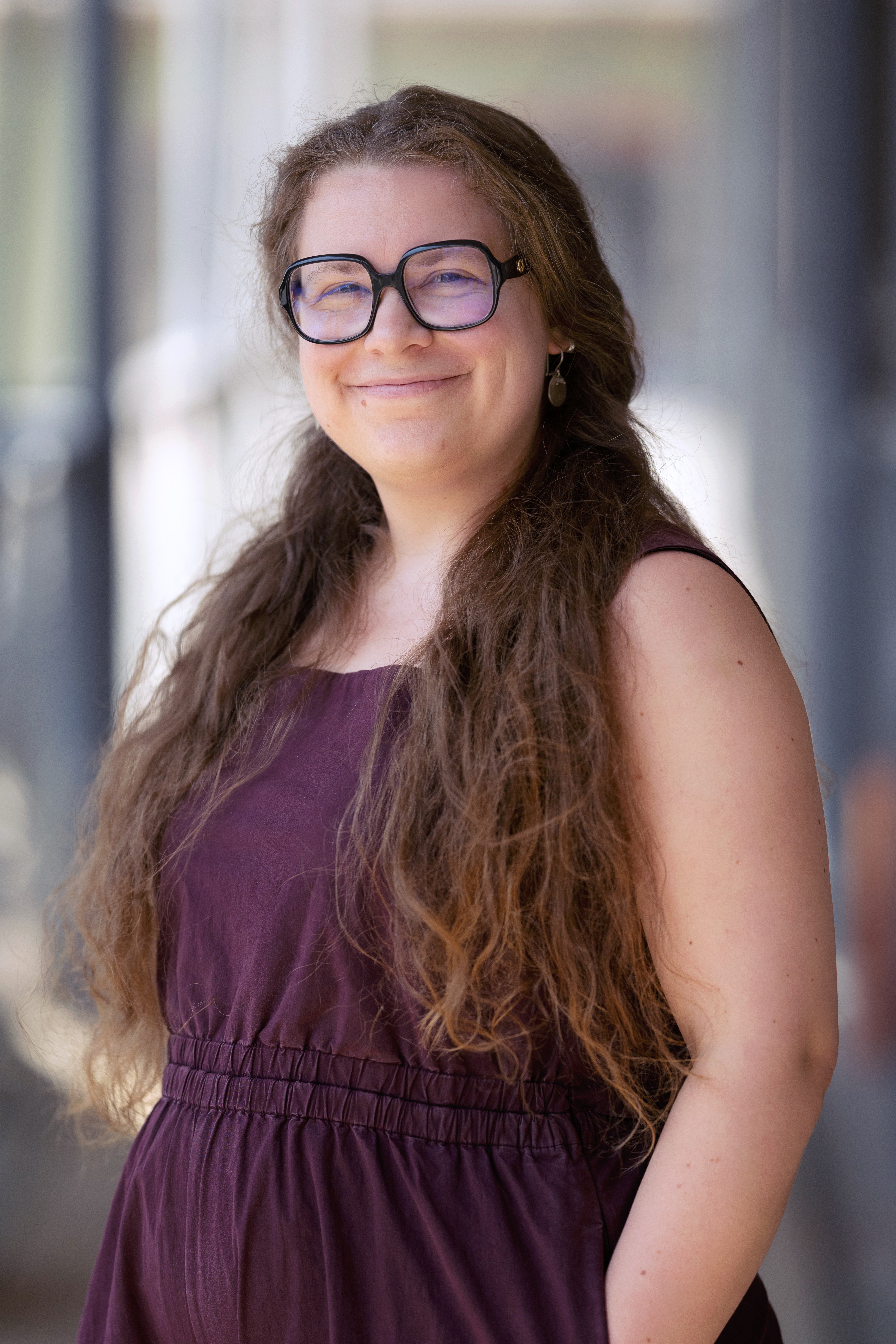

Research Interests
-
Old and Middle English
-
Lexico-semantics
-
Language contact, variation, and change
-
Medieval Latin
-
Manuscript studies, Palaeography
-
Corpus linguistics
Short Bio
I received both my BA (English, Computational linguistics, Japanese) and MA (English, Medieval studies) from the University of Zurich and from 2019-2024 I was a research and teaching assistant at the chair of Prof. Olga Timofeeva. My PhD project "Lexical loss, survival, and innovation in Middle English", supervised by Olga Timofeeva and Louise Sylvester, examined patterns and mechanisms of large-scale changes in the vocabulary of Middle English (ca. 1150-1500). In addition to lexico-semantics, historical linguistics, and the Middle Ages in general, I am also interested in Computer-Mediated Communication and online fandom, which I was able to explore as a research assistant on Prof. Moniek Kuijpers' SNF-funded projects "Mining Goodreads: A text-similarity approach to measure reader absorption" and "Shared Reading in the Age of Digitalization" at the University of Basel's Digital Humanities Lab between 2019-2023. Since February 2025, I am working as a postdoctoral researcher on the SNF-funded project "Waxing and Waning Words".
I am also part of the organising committee of the Junge Zürcher Mediävistik (JZM), a group of doctoral students and postdocs working on the Middle Ages. Twice a semester we hold a symposium where we present and discuss our research, followed by an apéro. Advanced MA students, PhD students, and postdocs based in Switzerland or abroad who are interested in joining us are always welcome!
Recent Activities
Thanks to a generous UZH Doc.Mobility grant, I was able to visit the English historical linguists at the University of Turku (Matti Peikola, EModGral team) in fall 2024, and my PhD co-supervisor Louise Sylvester at the University of Westminster in fall 2023.
In June 2024 I taught a half-day course on “The Evolution of English: From Medieval to Modern” at Kanti Baden.
Publications:
Mambelli, Gloria and Johanna Vogelsanger. 2024. “The church and the manor: Assessing and comparing the effects of language contact on two Middle English lexical domains.” Lexis (Special Issue 3). https://doi.org/10.4000/12izb
Vogelsanger, Johanna. 2023. “Survival Factors in the early Middle English Lexicon.” English Language and Linguistics 27(4), 661-691. https://doi.org/10.1017/S1360674323000072
Upcoming:
BA seminar on “Bad Language” in spring semester 2025
Postdoc in the SNF-funded project “Waxing and waning words: Lexical variation and change in Middle English”(WAW-ME) from February 2025
Teaching (Sample)
| “History of the English Language: Focus on Old English” | Fall semester 2019-2022 |
| “History of the English Language: Focus on Middle English” | Spring semester 2019-2024 |
| The English Language in its Material Context | Fall semester 2020 |
| Historical Corpus Linguistics | Spring semester 2022 |
| Colloqium: BA Thesis in Linguistics | Spring semester 2023/2024 |
Supervision (Sample)
I am happy to supervise BA and MA theses in any of the areas listed under “Research Interests”, and I am open to other topics as well. Feel free to write me an e-mail so we can set up a meeting to discuss your ideas. Here are some of the theses I have supervised in the past:
|